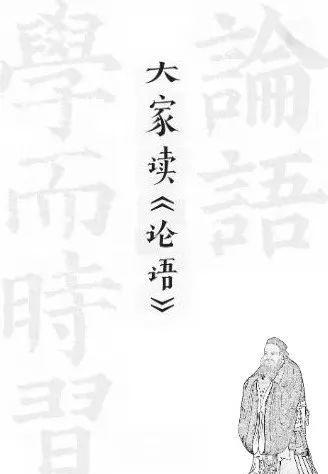
Zi Fowl asked Yu Zi Gong, "As for the Master being a state, he will listen to his government and seek peace with him?" Or with it? Zi Gong Yue: "The master is gentle, good, respectful, thrifty, and let him get it." What the Master wants, what is different from what man wants? ”
Translations
Chen Kang asked Zigong, "When Mr. Chen arrives in these countries, he can always participate in the discussion of major political affairs. Or did the monarch take the initiative to give it to him? Zigong said: "Sir obtained this qualification through a gentlemanly act of gentleness, kindness, and obedience, and strict self-discipline and giving up benefits to others." The way in which the gentleman seeks this qualification may, by its very nature, be different from the way others seek it? ”
unscramble
Confucius served as a sikou in the state of Lu, acting as an agent, and because he was dissatisfied with the performance of the monarch and the ruler, he ran away in anger. The immediate purpose of his travels around the world was to seek a career, and the main purpose of seeking a career was to promote his own political ideas. He visited many princely states, and although he never succeeded, he did not find nothing. Everywhere you go, you get a "listener" qualification, that is, to act as an advisor or a senator. With this qualification, his political views can be expressed, and it can be regarded as a partial realization of the goal.
When a country's political high counselor, Confucius is not satisfied, but in the eyes of ordinary people, this position is also desperately wanted by many people, and it will be regarded as a cash cow. In any official position, there will be people who will "seek" it by any means.
If the interests of fame and position are "with" by others, they are more decent, and if they are "asked" by themselves, they will make people suspect that there are undignified factors in it. "Ask for it? Or with it? What if it is understood to mean that "this name is active?" Or is it a normal appointment? It is not impossible, this is a question of the legitimacy of Confucius's way of "listening to his government". Of course, Zigong could feel the coldness and ruthlessness of this question, but he also did not seem to be able to cite the fact that Confucius "smelled his government" was the initiative of others, and had to admit that Confucius did "ask" for it, but it could not be understood as the kind of "seeking" method of others.
Logically speaking, the capital to obtain a position is character and talent. But if you have the corresponding character and talent, just wait for others to send the letter of appointment, which is probably waiting for the pie in the sky. The reality is that the "pie" is often hanging there, people are breaking the head, and the competition will be cruel and dirty. Of course, Confucius understood this kind of common sense, so when he went to various princely states to seek errands, he naturally had to "ask" for it. When he was defending the country, he had no choice but to go to see Nanzi, the Duke of Weiling, and when he wanted to go to the Chu kingdom, he "first took the son Xia, and then Shen Zhi ran you" ("Li Ji Tan Bow Shang"), which is a manifestation of condescending to "ask" people.
It is also "seeking", but its means are divided into literature and wilderness. Confucius used "virtue" to open the way, and took the initiative to show the gentlemanly demeanor of gentleness, kindness, courtesy, frugality, and concession, which was a magic weapon that he tried and failed many times.
Virtue is a weapon in the struggle of life, which has a breakthrough function in the offensive battle and is also quite lethal to competitors. To say that a gentleman can never fight a villain is an indignant statement. If other conditions are evenly matched, the lack of virtue will often be defeated by the virtuous.
In terms of Confucius's strength and influence, it is very glorious for the ruler to keep him. But everyone knows that he is a double-edged sword, and there will be trouble in using him, so give him a "smell of the government" idleness, which can not only keep him, but also prevent him from making trouble, anyway, he has no better place to jump ship. Of course, Confucius knew his situation, so he showed a humble attitude of gentleness, kindness, courtesy, frugality, and concession in front of the rulers, and tried to hide his sharp edge, which was a defensive strategy. This reassures the ruler about him and gives him a decent place to live, which is a win-win situation. With his great influence and docile gentleman's posture, Confucius was able to "ask" for it again and again. This method of "seeking" is, of course, both dignified and clever compared to many of the other people's inferior performances.
▼Click on the business card tag To follow us▼